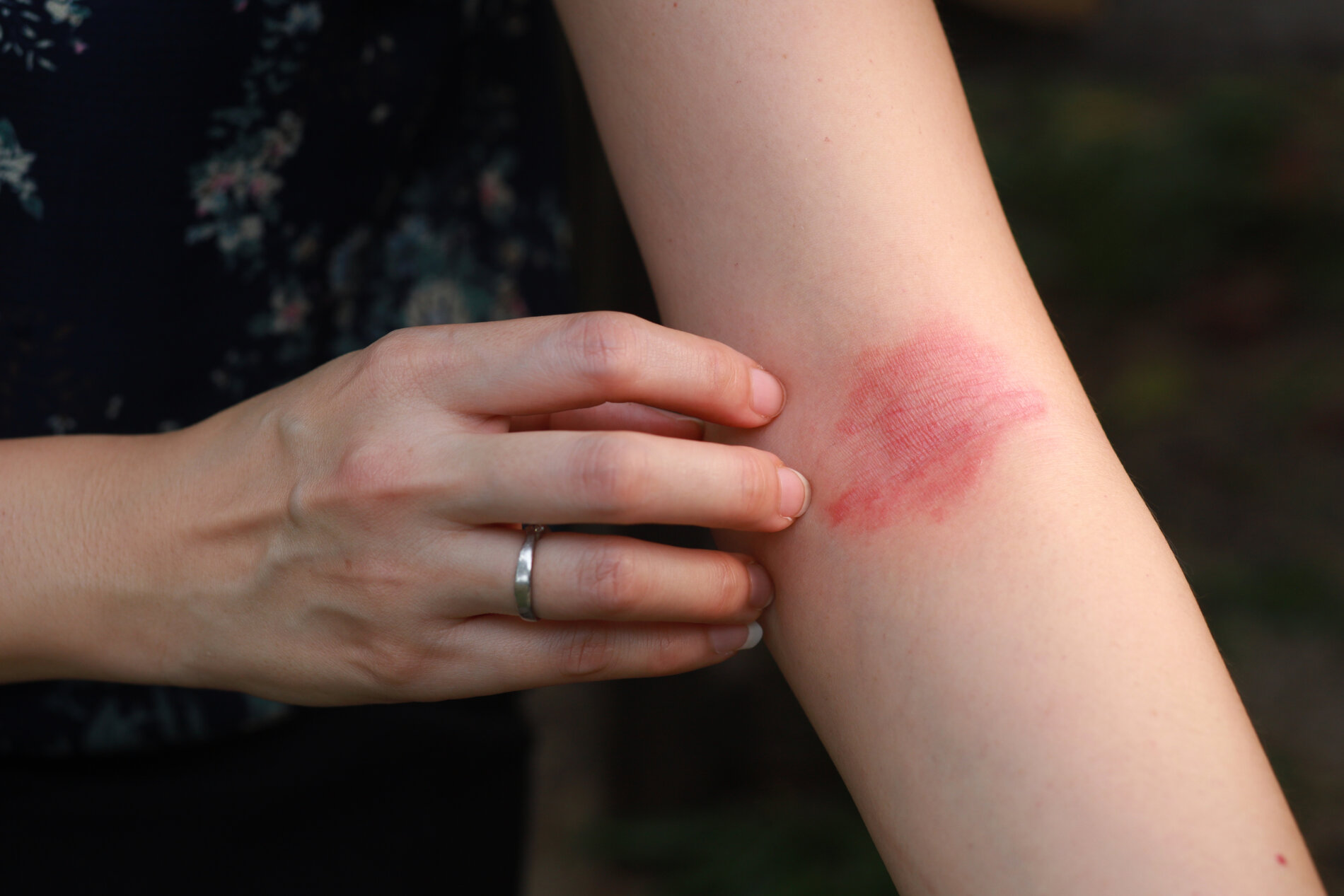Eczema (Atopic Dermatitis)
Eczema or atopic dermatitis (AD) is a condition of extremely inflamed, dry, and itchy skin. AD ranges in severity from mildly annoying to profoundly disruptive. People of all ages can develop atopic dermatitis, but the condition is most common, in infants and children.

Symptoms
AD causes persistent dry, red, scaly patches of skin that can involve any part of the body. Over time, AD can lead to cracked and "leathery" skin that may weep and ooze.

Treatment
Treatment of AD includes avoiding skin irritants and properly applying effective moisturizers. In more severe cases, prescription creams or ointments are helpful. In extensive or persistent cases of AD, our providers may prescribe systemic medications.
When to Make an Appointment
If dry and itching skin does not respond to regular moisturizing, if it disrupts your daily life, or if you have previously received treatment for AD but the treatment is no longer effective, Contact Us for an evaluation.